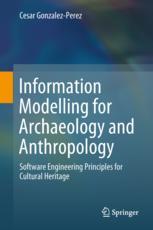

Most ebook files are in PDF format, so you can easily read them using various software such as Foxit Reader or directly on the Google Chrome browser.
Some ebook files are released by publishers in other formats such as .awz, .mobi, .epub, .fb2, etc. You may need to install specific software to read these formats on mobile/PC, such as Calibre.
Please read the tutorial at this link: https://ebookbell.com/faq
We offer FREE conversion to the popular formats you request; however, this may take some time. Therefore, right after payment, please email us, and we will try to provide the service as quickly as possible.
For some exceptional file formats or broken links (if any), please refrain from opening any disputes. Instead, email us first, and we will try to assist within a maximum of 6 hours.
EbookBell Team

4.3
58 reviewsThis unique text/reference reviews the key principles and techniques in conceptual modelling which are of relevance to specialists in the field of cultural heritage.
Information modelling tasks are a vital aspect of work and study in such disciplines as archaeology, anthropology, history, and architecture. Yet the concepts and methods behind information modelling are rarely covered by the training in cultural heritage-related fields. With the increasing popularity of the digital humanities, and the rapidly growing need to manage large and complex datasets, the importance of information modelling in cultural heritage is greater than ever before. To address this need, this book serves in the place of a course on software engineering, assuming no previous knowledge of the field.
Topics and features:
Dr. Cesar Gonzalez-Perez is a Staff Scientist at the Institute of Heritage Sciences (Incipit), within the Spanish National Research Council (CSIC), Santiago de Compostela, Spain.